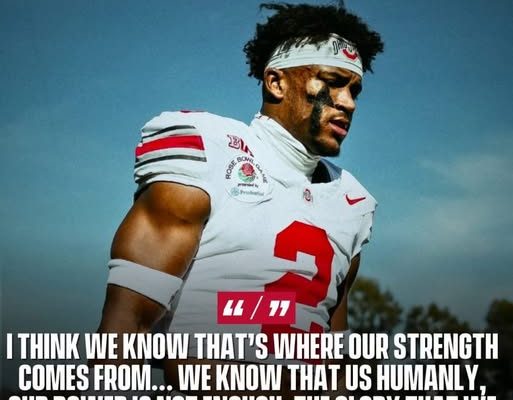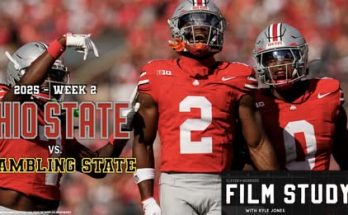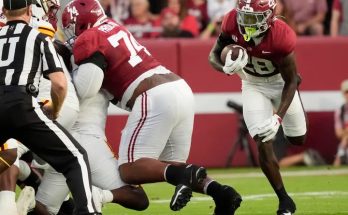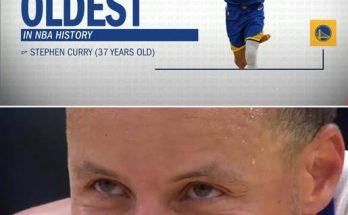Caleb Downs is the kind of athlete whose name has quickly risen to prominence in the college football world, not just because of his relentless drive on the field but because of something deeper that fuels him when the lights dim and the cheering stops. Strength on the field is one thing, but Downs has made it clear that his source of true power does not come from his speed, his toughness, or his ability to break down an opponent’s play. Instead, it comes from his faith, something that he carries with him long before the helmet goes on and long after the game clock hits zero. His story is not just about football but about purpose, balance, and a conviction that strength and faith can go hand in hand.
From a young age, Downs was molded by the game. Born into a football family, he had exposure to the sport’s demands early on, watching, learning, and soaking in lessons that would eventually translate to his dominance as a safety. His talent was undeniable, the kind of natural ability that coaches dream of and fans recognize instantly. But even in the midst of athletic promise, he understood that ability alone wasn’t enough. Football can be cruel, a game of highs and lows, of moments where injury, defeat, or self-doubt threaten to break even the most gifted players. It’s in those moments, Downs believes, that true character shows, and for him, true character means leaning into faith.
He has spoken often about how his Christian faith is the anchor that steadies him through the turbulent waters of competition and expectation. For Downs, belief is not a quiet, hidden aspect of his life but a guiding force that shapes how he trains, how he competes, and even how he relates to teammates, coaches, and fans. When others see the pressure of carrying a program’s hopes on his shoulders, Downs sees an opportunity to reflect something greater than himself. It is not unusual to find him after a game giving thanks, not only for the victory or his own performance but for the simple opportunity to play at all. In his own words, football is a gift, but it is not the ultimate prize.
On the field, he is a nightmare for opposing offenses. His vision, tackling ability, and instincts make him one of the most complete defenders in the country, a player capable of changing the complexion of a game with one decisive play. Whether it’s laying down a crushing hit, disrupting a pass, or rallying his teammates with energy, Downs plays with an intensity that feels almost supernatural. But ask him where that intensity comes from, and he points upward, explaining that his preparation and his execution are both rooted in a mindset of service, dedication, and humility. He trains hard because he believes in giving his best effort as a reflection of his gratitude for the opportunities given to him. In this way, his approach is not just about physical dominance but about purpose-driven performance.
There’s something contagious about his attitude. Teammates notice it, describing him as someone who not only raises the level of competition but also brings perspective to the locker room. In a sport where egos often clash and individual glory can overshadow collective success, Downs has managed to embody both competitiveness and humility. He wants to win, and he plays like someone who refuses to accept defeat, but at the same time, he keeps his focus anchored in the bigger picture. Faith reminds him that his identity is not tied only to statistics, awards, or even championships. Instead, it’s tied to the values he carries and the example he sets both inside and outside the stadium.
College football is full of stars, but not every star shines the same way. Downs’ journey is not without adversity. Like many young athletes, he has faced the whispers of doubt, the physical strain of pushing his body to its limits, and the mental challenge of balancing academics, football, and life in the spotlight. What makes his story compelling is not just how he overcomes these obstacles but the perspective with which he approaches them. For Downs, adversity is not a curse but a test of faith. Injuries and setbacks are not reasons to give up but opportunities to lean deeper into what he believes. In this way, his resilience becomes a kind of testimony, showing that true strength is about more than muscle or skill—it is about enduring and finding meaning in the struggle.
Fans have begun to notice the duality of his identity, celebrating him not only for his highlight-reel plays but also for his humility and consistency off the field. In an age where athletes are often defined by flashy lifestyles, controversial statements, or constant self-promotion, Downs’ quiet confidence and grounded nature stand out. He is proof that faith and excellence are not mutually exclusive but can instead reinforce one another. That balance has made him more than just a player to watch—he has become a role model to young fans who see in him the possibility of chasing dreams without compromising values.
Coaches often describe him as coachable, a rare quality in a player who already possesses such raw talent. He listens, absorbs, and applies feedback with discipline, seeing correction not as criticism but as growth. That attitude, shaped by faith, allows him to avoid the arrogance that sometimes undermines gifted athletes. Downs understands that no matter how great his performance, he is not above learning, and he sees growth as a lifelong process. This perspective not only makes him better as a player but strengthens the entire team, creating a culture where humility and excellence coexist.
In interviews, he has been candid about the role faith plays in giving him peace amid the noise. When fans clamor for more, when media narratives build pressure, when mistakes happen, Downs finds stability in prayer and reflection. He doesn’t shy away from acknowledging that he leans on God in these moments, knowing that his identity doesn’t rise or fall with a single game. This has freed him to play with a kind of fearlessness, giving his all without being paralyzed by the fear of failure. Faith, in his case, becomes the ultimate competitive advantage, allowing him to maintain perspective no matter the scoreboard.
That kind of approach has ripple effects beyond the sport itself. Downs has spoken about how his platform as an athlete is not just for personal gain but for inspiring others. He knows young athletes look up to him, and he embraces the responsibility of modeling character as well as skill. His faith reminds him that influence is not something to be wasted, and he has made it clear that the ultimate win for him is not just a trophy but making a difference in the lives of those who watch him. Whether that means encouraging teammates, mentoring younger players, or simply living consistently with his beliefs, Downs seeks to leave a legacy that goes far beyond the box score.
It’s not easy to walk the line between fierce competitor and humble servant, but Downs has shown it’s possible. His story resonates because it reflects a truth that goes beyond sports: the strongest people are not always those who hit the hardest or run the fastest but those who know where their true power comes from. For Downs, that power is rooted in faith, shaping every decision, every action, every word.
As his career continues to unfold, it’s clear that fans will have plenty of on-field highlights to celebrate. But perhaps the most lasting impact will be the way he demonstrates that success is possible without losing sight of faith and values. Strength on the field makes him a standout safety, but faith off the field makes him something greater: a reminder that sports can inspire not just through competition but through conviction.
Caleb Downs knows where true power comes from, and in an age where athletes are often pressured to be larger than life, he shows that the greatest strength lies in humility, gratitude, and faith. That, more than any tackle or interception, may be the legacy that defines him.



